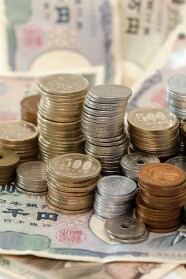The Japanese yen slumped this week as the Bank of Japan embarked on quantitative easing, diminishing attractiveness of the currency that would be otherwise bolstered by uncertainty about the bailout for Greece.
The BoJ spoiled that could have been a very good week for the yen by increasing the scope of their asset purchases, a stimulating measure for Japan’s economy. It hurt the currency exchange rate significantly, but it’s unlikely that the central bank would be too worried by that as the bank has often attempted in the past to weaken the yen.
Market sentiment was actually positive for the Japanese currency as it was depressed by the uncertainty about when Greece will receive aid and would it receive the rescue at all. That should become clear on February 20, but traders are simply tired by the Greek story that endlessly drags on and on. The United States, on the other hand, added to the downside momentum of the yen as the macroeconomic data from the country was very positive, reducing the negative impact that the news from Europe have on investors’ mood.
The yen was falling for almost the whole week. It rose a little on Monday and slowed its decline on Wednesday, but the drop was very big nevertheless.
USD/JPY jumped 77.61 to 79.55 this week, while the weekly high of 79.61 was the highest since August 4. EUR/JPY surged from 102.82 to 104.55, reaching the highest price since December 5 of 104.66. GBP/JPY climbed from 122.49 to 125.84, while the weekly maximum was 126.05 — the highest since November 1.
If you have any questions, comments or opinions regarding the Japanese Yen,
feel free to post them using the commentary form below.



Be First to Comment